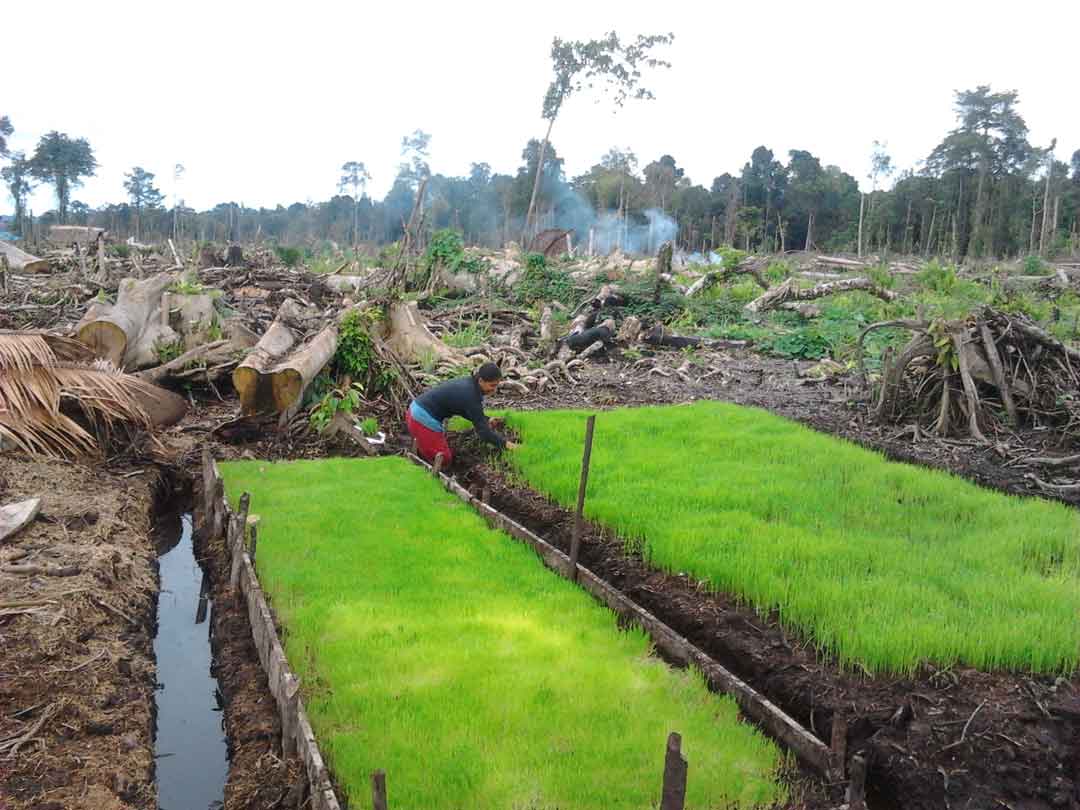Indigenous People and Food Insecurity in an Epoch of Ecological Crises
More than 370 million indigenous peoples worldwide living in richly biodiverse yet fragile ecosystems—mainly forests and coastal zones—have suffered the impact of climate change. Climate change-induced disasters such as rising sea levels, increased climate variability, frequent droughts, floods, and typhoons affect indigenous peoples’ foodways. Foodways refer to a complex food system of production, processing, distribution, and consumption particular to a specific geographic region. Changing foodways has a detrimental impact on the health of indigenous peoples and threatens their survival.
The damaging impact of climate change on indigenous foodways has coincided with mounting international attention on global food insecurity and resource scarcity, which provokes the expansion of land control and the renewal of interest in resource extraction. The rapidly increasing amount of land, forest, and coastal conversion into non-food production threatens the very existence of indigenous foodways, generating mundane precarity and plunging indigenous people into a perpetual state of insecurity.
International agencies recognise the necessary links between climate change, food security, and development programming. Scholars have called for a global monitoring system to evaluate the impacts of climate change on indigenous foodways and contribute to implementing the international commitment to indigenous rights. However, research on the effects of climate change on indigenous foodways is drawn from the concept and measurement of food insecurity, which frames food and human activity through nutrient equations and metrics. The definition of food insecurity in global discourse and policy is narrow, instrumental, and technocratic, relying on a typically metric-based analysis (Yates-Doer 2013) and the statistical data of food supply and trade of agricultural products at large scale which reveal little about the complexity of food availability, power relations, and the symbolic aspect of food at particular space.
What is missing is a grounded study investigating the impacts of climate change on indigenous foodways that reflects indigenous peoples’ worldviews, needs, and rights. To fill this gap, the project proposes an intimately investigative ethnography of how climate change affects indigenous foodways that provokes questions on the contingencies and complexity of the food insecurity experienced by indigenous peoples. It attempts to investigate how the CC and ecological crises give rise to the depletion of food resources, the relations between indigenous people and their food resources, and the complex food insecurity that speaks in material, sensory, and symbolic ways.
The project intends to complement the metric-based food insecurity analysis with the stories, knowledge, practices, ideas, and experiences of indigenous people and food deficiency. In particular, the proposed project will investigate the physical, moral, political, and symbolic significance of food insecurity from the native (emic) point of view, locating empirical findings on food deficiency in the context of indigenous conceptualisation and perception of human and ecological wellbeing. This project combines food anthropology that focuses on culture and human diet with the emerging focus of environmental humanities on the intersections of health and environmental change and the political ecology of the food system.




